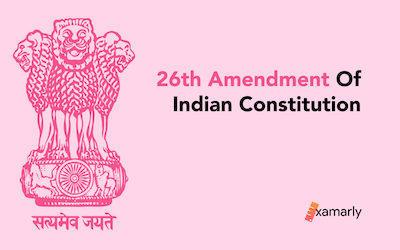
26th Amendment (India). The Amendment in India ending payments, known as the ‘privy purse,’ to the ruling families of erstwhile princely states as part of their agreements to first integrate with India in 1947 after the independence of India, and later to merge their states in 1949, thereby ending their ruling rights.
When the British Crown partitioned British India and granted independence to the new Dominions of India and Pakistan, more than a third of the subcontinent was still covered by princely states, with rulers whose position and status within the Indian Empire had varied.
In 1947, there were more than 560 such princely states in India, over which the British Crown had suzerainty, but not sovereignty. In 1947, princely states, numbering 555, covered 48% area of pre-independent India and constituted 28% of its population.
By the Indian Independence Act 1947, the Crown abandoned its suzerainty, leaving the rulers of the states free to choose to accede either to India or to Pakistan or to remain fully independent. Most had been so dependent on the Government of India that they had little choice but accession.
By the eve of independence, most of the princely states had signed instruments of accession to India, and only one to Pakistan. Only a few states held out for complete independence after the British left India. Even after independence three states vacillated, namely Jammu and Kashmir, Junagadh, and Hyderabad, which were integrated later.
Although the royal families had been allowed to retain large sums of money as their privy purse in 1947; in 1949, with the states and its revenues being entirely taken over by the Government of India, it was the Indian Government that provided the rulers and their families with privy purses that were determined by several factors such as the state’s revenue, whether the state had been ranked as a salute state under the British Raj or not, antiquity of the dynasty, and so on.